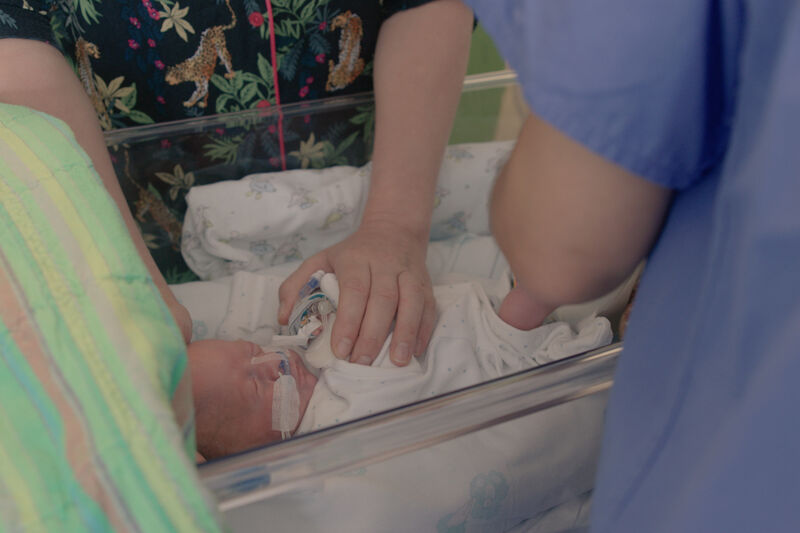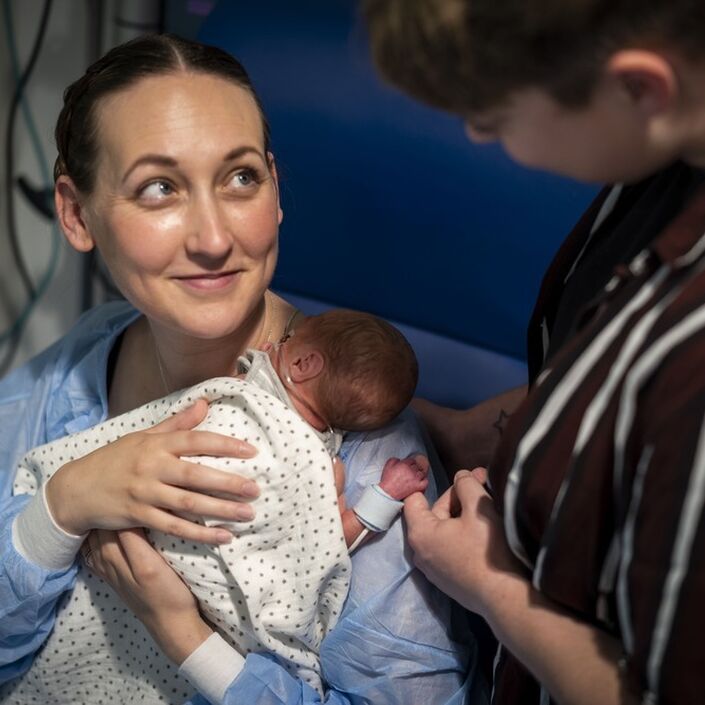Your baby is being treated in a neonatal unit because they need some medical care. This will include necessary procedures that may cause them some discomfort or pain.
As a parent, you have a unique and amazing ability to comfort your baby through pain and discomfort in a way that no one else can.
This pain and discomfort can be broadly split into two categories:
- Acute procedural pain – this is the pain a baby feels for a short time during medical procedures or tests.
- Ongoing pain, discomfort, or stress.
Acute procedural pain can happen during a procedure, for example, when a sample of a baby’s blood needs to be taken through a heel prick. Ongoing pain or discomfort can happen for a number of reasons. It could be caused by a medical condition or longer periods of stressful activity, for example, moving to a different neonatal unit.
These pages will focus on how parents and neonatal care teams can work together to comfort babies through acute procedural pain. If you would like information about how you can help manage your baby’s ongoing pain, discomfort, and stress, visit our pages about Looking after your baby on the neonatal unit.
We also look at how parents and healthcare professionals can work together to help comfort babies, and we provide suggestions for unit staff about how they can help support you.



